The Pot Cast #36 Interview With James Bean, Cannabis Seed Broker Extraordinaire and Industry Insider

Interview with James Bean, Cannabis Seed Broker Extraordinaire and Industry Insider
Interviewed Aug. 9, 2019
Welcome to a deep dive with James Bean, affectionately known as Mr. Wonka, the driving force behind Seeds Here Now—one of the cannabis seed industry’s most respected brokers. If you’re a budding enthusiast or a seasoned grower, you won’t want to miss this interview. It’s packed with insider knowledge, raw honesty, and a few laughs sprinkled throughout. From the evolution of the cannabis scene to the future of breeding, James lays it all out with that signature no-BS style.
Getting To Know James Bean and His Current Vibes
What are you currently smoking on these days?
Earlier today, I was puffing on some Kaka Kush, also known as the Brown Frown. But, I ran out of that, so I switched to dabbing some dry sift from Exotic Genetix—the Strawberries and Cream F2 dry sift. It’s got this sweet strawberry flavor that’s pretty unique. Exotic’s been working on that strain for a while, and you can tell he’s proud of it. He even hooked me up with some samples before the seed drops, which shows the level of confidence and quality control he puts into his work.
What’s the high and taste like on Strawberries and Cream or Kaka Kush?
Strawberries and Cream definitely tastes sweet, like you can actually pick up the strawberries in the flavor. Kaka Kush, on the other hand, is a bit of a headache-inducer for me, probably from a missed seed or something, but Strawberries and Cream is delicious and smooth. Exotic Genetix is always pushing forward, never letting things get stale, which I respect a lot.
Is that forward-moving attitude common among successful breeders?
It really depends on the breeder. Take Mike from Exotic Genetix, for example. He’s always ahead of the curve, working on multiple projects at once. Contrast that with someone like Odie Diesel from Homegrown Natural Wonders, who doesn’t release often, but when he does, it’s tried and true. Both approaches have their merits. What unites them is a keen eye for quality—Mike can spot the fiery bud in a room full of plants. That’s a skill you can’t teach.
The Business of Seeds: From DJ to Industry Titan
What’s new and exciting in the world of James Bean?
Right now, I’m gearing up for the Indo Expo in Portland. After that, I’ll be heading back to Medford to run my office, then back to the San Diego area. We’ve got the Miami show coming up in September, which is a big retail event. Florida’s cannabis scene is interesting—it’s limited by some bizarre laws, like needing facilities that have been operational for 40 years. But the culture is definitely there, especially with the tourism boom and cruise ship traffic.
Which state do you think will be next to legalize cannabis and open the floodgates?
Honestly, it’s tough to say. Many states are on the cusp, but nothing’s moving fast lately, especially with the federal sessions being quiet. It’s definitely not Idaho—they have one of the best climates to grow cannabis, but the political climate is way behind. Utah legalized before Idaho, which is just weird. I think eventually the momentum will catch up, but it’s a waiting game.
Tell us about your first experience with cannabis.
I was hustling quarter-pound shakes and joints for a while before I even smoked. Didn’t try it myself until my senior year of high school. We used to smoke in the back of a Blazer with iced tea as bong water—those were fun times. The first stuff we had was called “beasters,” which I later learned was M39. It smelled like hay, but that was just mold. Did I get high the first time? I don’t remember—short-term memory loss is real—but it definitely set me on this path.
How did you go from Mr. Wonka to the giant of the seed world?
I was a DJ for 15 years, touring and notorious for always having weed on me. Around 2010, the scene changed and got commercialized, losing that underground vibe. A friend who had become a breeder schooled me on the cannabis game and offered me a chance to sell seeds for him. I took that napkin deal and started Seeds Here Now. From trade shows and hemp fests to building websites (and dealing with the headaches of running them), it’s been a journey. The key was helping breeders get their genetics out there while providing top-notch customer service.
What’s your role exactly? Are you involved in breeding?
No, I’m a broker. I don’t produce seeds; I help breeders get their genetics to customers. I focus on customer service, ethics, and satisfaction guarantees. If something goes wrong, we fix it or replace the seeds. We’ve got over 1,600 five-star reviews, and I never want someone going online to trash us without giving us a chance to make it right. That’s how we build trust in this industry.
The Challenges and Triumphs of Running Seeds Here Now
You’ve faced a lot of website attacks. What’s that about?
Yeah, we’ve been attacked multiple times—one 420 we got hit with 17,000 comments per hour saying nasty stuff. They’re coming from Russian IPs using Tor and onion routing, so it’s hard to block. I don’t know who’s behind it—customers wouldn’t do that. Maybe some ex-breeders or haters. I run a team of 13 and represent 40 breeders, so when they attack me, they’re attacking a lot of people’s livelihoods. It’s frustrating, but we keep fighting.
How do you handle these setbacks?
We’ve gone through four website shutdowns in four months. It’s been a pain, but we appreciate the customers who stuck with us. We’re launching a new website with better security and a forum feature by September 1st. The forum will have breeder pages, chats, and announcements, all hosted on our servers, so they won’t get taken down. It’s about preserving cannabis culture and information in a hostile digital environment.
Breeders, Brands, and the Future of Cannabis Genetics
Who’s the newest big-name breeder on your roster?
Jackson Zentner, aka Meme Gene or Freeborn Selections, just joined us. This guy pops more beans than anyone I know, hunting for those finos. We started working together about three years ago, and I’ve been trying to get him on board for a while. We’re kicking off with Sky Cutler Kush and Pina Colada. He’s solid, loves the plant, and fits right in with the tier-one breeders like Duke Diamond.
How quickly do you expect his seed drop to sell out?
Pretty fast. We only had a two-day ad run, and many people already have their gardens set for the season, but Jackson’s stuff moves quickly. I could pull the numbers, but I’m confident it’ll go in seconds once live.
Any other breeders you’re looking to add?
Yeah, a few exciting names. Omuerta from Canada, who’s super nice with some killer plants. Cornbread Ricky from Swamp Boys in Spain, who has deep seed bank knowledge and lots of history with classic genetics like Sacred Seed Bank and Neville’s Haze. Also, True, who has a fascinating backstory including working with Connoisseur and some jail time for exporting. We’re excited to bring these guys in and share their stories.
Who’s fallen off in your eyes?
Well, I can’t name names, but some banks I no longer carry. Brothers Grimm, for example, have slowed down since Duke left. Duke was the heart and soul of their operation. He’s a beast, a true animal, and a friend. Without him, the output just isn’t the same. But the market is constantly shifting, and you have to keep up or fade out.
How do breeders stay relevant in a constantly changing market?
Swamp Boys are a great example—they don’t chase trends. They just do their own thing and care about their own vision. Lemon Royale from them killed it last year; it’s massive and stinky. The key is to keep innovating and not copy others. By the time you catch up to someone, they’re already onto the next thing.
What’s the story behind Katsu Bluebird’s famous Bubba cut?
Katsu bought the Bubba cut on the forums in 2001 for a couple hundred bucks. The guy who sold it to him then told him he couldn’t sell or give it away, which pissed Katsu off. So, he made it his mission to share it freely. If you were growing ditchweed in Nebraska and got a cut from Katsu, you were king of the local scene. He built a reverse genetic library by exchanging cuts with growers across the country. That’s the kind of grassroots legacy that shaped the industry.
Have you ever considered adding Cookie Fam to your catalog?
I had the chance last year but dodged that bullet. Their setup was weird, charging $400 and selling for $500, letting others auction for $800. I couldn’t support that. However, JBZ is now breeding for them, and there’s a collaboration brewing. JBZ is an excellent breeder who took care of the Candy Rain situation, paying his assistant to replace packs for customers so nobody felt ripped off. That’s the kind of integrity I respect.
What’s your take on new breeders jumping in, like Jungle Boys starting to breed?
Buyer beware. Just because you sell weed doesn’t mean you know how to breed. Breeding is a science with recessive traits and complex genetics. I tell my guys, if you see me making seeds, run for the hills. Some people are just adding more noise to a crowded market, and that ultimately drives traffic to established breeders like me, which isn’t fair. Respect the craft and stay in your lane.
What about autoflowers? Any standout breeders?
Mephisto is in a league of their own. They put in the work and don’t just flip photos overnight into autos. There’s serious breeding and inbreeding involved. Their gear still tops my charts despite some recent hiccups. Others can’t keep up with their quality and consistency.
What’s your take on the infamous Filos controversy and genetic mapping?
It’s a mess. We were with them for a while until they couldn’t explain their business model. They claim they don’t sell data but they do. The technology they use is incomplete, often only reading short codes, which can’t distinguish between strains like Cookies and OKGB. The long code sequencing is more expensive and accurate but not always done. It’s hard to trust genetic mapping when the data isn’t transparent or reliable.
Why are breeders obsessed with breeding pit bulls?
I don’t know, but breeders like Elena, Bob Hemphill, and JJ are all into pit bulls. It’s just breeders breeding—same with Exotic breeding chickens or my guy Omuerta breeding pythons. Breeders love to breed. It’s in their DNA.
Tell us about Microtech’s GG4 IBL release.
Due to lawsuits, I can’t mention it by name, but Microtech did an incredible job bringing GG4 back to an inbred line with proper documentation. Josie approved it, and it’s a big deal because Microtech is a breeder’s breeder, controlling top genetics like Penis Envy mushrooms. It’s great to have him back in the game.
What’s the story behind your connection with Australia?
We’ve tried shipping seeds to Australia, but customs keeps sending them back. It’s frustrating because the Farm Bill says hemp with less than 0.3% THC is legal, so seeds shouldn’t be an issue. The U.S. government banned cannabis in 1937 despite its medicinal potential, and that legacy affects us everywhere. The media spins CBD as coming from hemp, but it’s all cannabis. Hopefully, the future will look back at this prohibition era like alcohol prohibition—as a stupid mistake.
Industry Insights: The Emerald Cup, Celebrity Brands, and Market Trends
How was last year’s Emerald Cup?
It was rough. We paid over $28,000 in taxes alone and took a loss because of miscalculations. Lines were mismanaged, and the show was mobbed, especially around booths like Calculator and Exotic. I didn’t get to see any music or connect with people. I’m not a fan of recreational legalization because it favors big farms and wipes out mom-and-pop growers. Decriminalization would have been better to keep small players alive.
What’s your take on the current oversupply problem, like in Oregon?
Oregon’s sitting on six years of unsold weed. The supply-demand math is way off. Big operators with massive greenhouses and online controls can flood the market, pushing prices so low that small growers can’t survive. It’s a bummer for the good people losing money, but that’s the reality of the legalized market.
What about celebrity cannabis brands like Seth Rogen’s Houseplant?
Unless they’re doing it for the right reasons, they’ll never get it right. Joe Blow off the street (no disrespect to Joe Rogan) might not have the depth of knowledge that industry veterans do. If you want to brand cannabis, pay someone who knows the game. People did this when it wasn’t profitable, and we owe it to them to respect that legacy.
How do you maintain relationships with breeders whom you might not have liked in the past?
It’s business. You can learn something from everyone—even people you don’t like. I’ve had grudges and disagreements, but I’ve learned to let that go and focus on the long game. If you have an issue, reach out and clear the air. Social media drama only does damage. We’re all in this together.
Personal Favorites and Final Thoughts
What’s the most memorable strain you’ve ever smoked?
Sherballs—Sherbet crossed with Fruity Pebbles. There’s a green pheno and a purple pheno, and both are amazing. People at the gas station could identify it by taste alone, which speaks volumes.
What’s the worst strain you’ve ever smoked?
Candy Rain. Some folks brought it to Mike’s booth in Massachusetts, and it was sad. Not the grower’s fault—he had other good stuff—but it just didn’t hit the mark.
If you were stranded on a desert island and could only take three strains, what would they be?
I’m not a breeder, so forget the witty “landrace” answer. I’d take Shirls, Morning Steve Sativa Star, and Thin Mint. Thin Mint hits the spot and knocks me out—reliable as hell.
What clone do you miss growing the most?
Honestly, I miss having my weed around period. The process of growing, trimming, and just being with the plants is special. If I had to pick a clone, it’d be Romulan. I lost a whole crop to a power outage caused by a snowstorm in Tahoe. That was the moment I decided to leave growing behind and focus on the seed business.
Any exciting projects on the horizon?
Duke and I have a strain lined up for next year—MJ Bizcon. It’s a pre-1937 Dust Bowl strain, drought- and mold-resistant, and incredibly potent. It was so strong that, in 1932, they made it illegal. We’re bringing that badass legacy back.
Shoutouts and Final Words
Big thanks to all the breeders I work with—they trust me to represent their genetics because I have their backs. Huge shoutout to my office team, sales guys, trade show crew, and legal team for keeping everything running smoothly and the haters at bay. I also want to thank the podcast for having me on again. I started this journey in 2010 to help a buddy, and it’s been wild since.
Even from folks I didn’t get along with, I learned valuable lessons that shape how I do business today. Passion and respect for the plant are what matter most.
FAQs
- What exactly is a seed broker?
A seed broker helps breeders distribute their cannabis genetics to customers without being directly involved in breeding or seed production. - Why is customer service so important in the cannabis seed industry?
Because buyers often face issues with germination or quality, responsive customer service builds trust and ensures satisfaction. - Are autoflower seeds as good as photoperiod seeds?
Some breeders like Mephisto have developed autoflowers that rival or exceed photoperiod varieties in quality, but it requires serious breeding work. - Why is there so much drama in the cannabis seed community?
The industry is young and competitive, with lots of egos and high stakes. Social media can amplify conflicts, but collaboration is key to progress. - Can you buy pollen from breeders?
Some breeders sell pollen, but males are highly guarded since they define a breeder’s unique genetics. Home breeders can also produce their own pollen. - Why are cannabis forums making a comeback?
Social media platforms frequently delete cannabis content, so forums offer a more permanent, troll-free space to share knowledge and history. - Will Seeds Here Now ship to Australia?
They have tried, but customs issues persist. Legal complexities and shipping challenges make it difficult at the moment. - What’s the difference between decriminalization and recreational legalization?
Decriminalization removes criminal penalties without creating a commercial market, while recreational legalization allows full commercial sales, which can favor big businesses.
James Bean’s journey from a weed-loving DJ to a key player in the cannabis seed world is a testament to passion, perseverance, and keeping it real. His insights into breeding, business, and the culture of cannabis genetics are invaluable for anyone looking to understand this evolving industry.
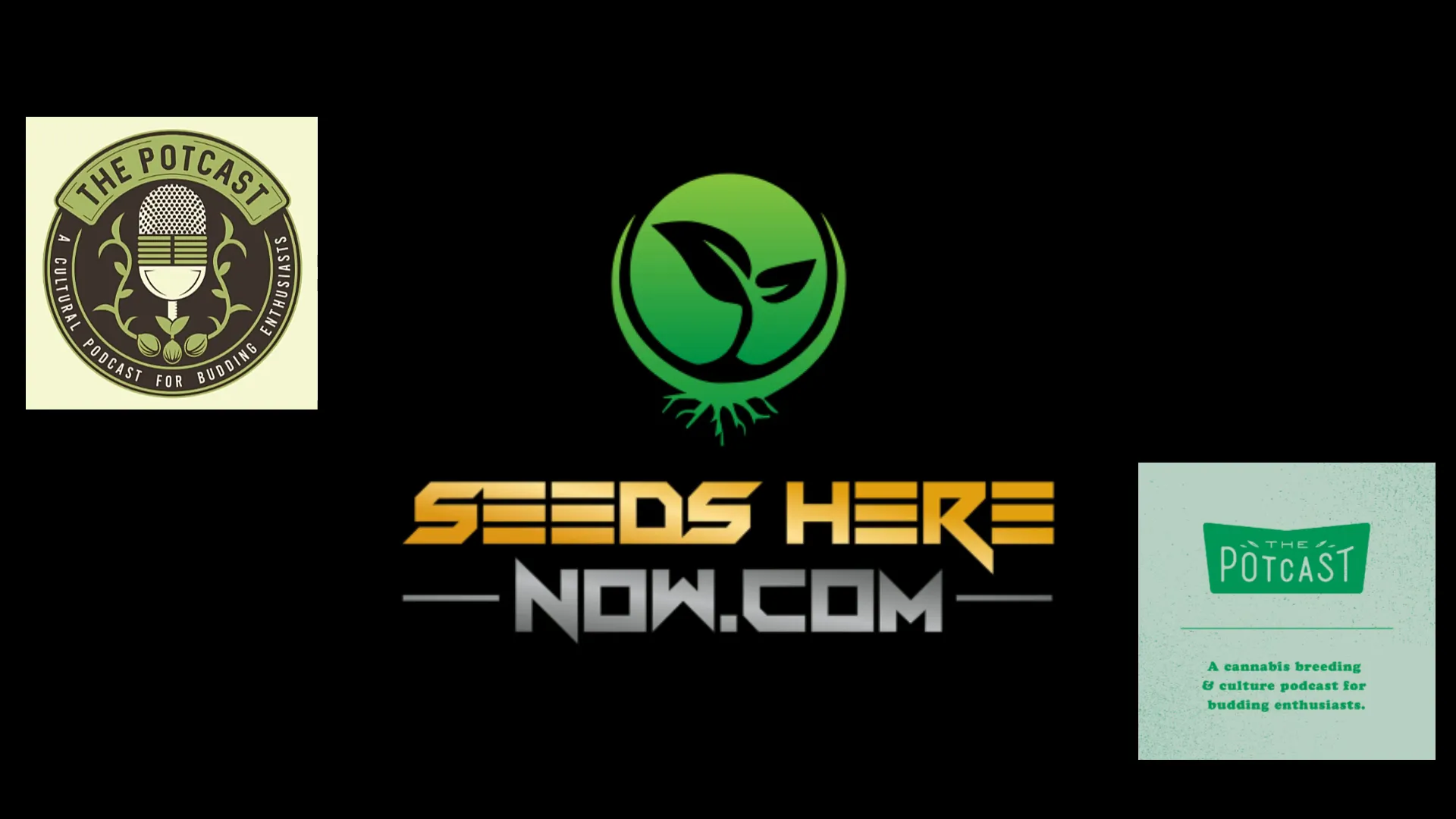
Suggested Articles
;)
;)
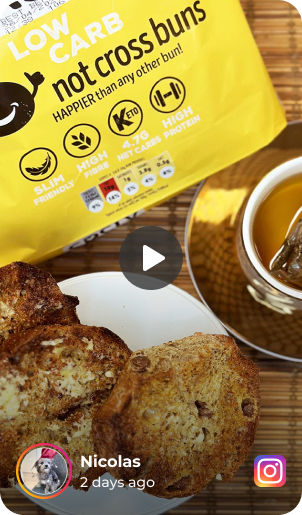;)



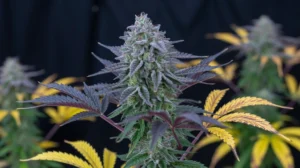
 24 Feb 2026
24 Feb 2026  7 min read
7 min read
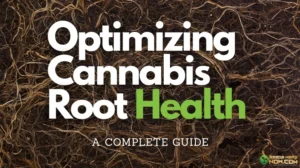
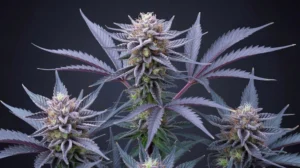
 August 07, 2025
August 07, 2025 


RESPONSES (0)
No responses yet. Be the first to respond!